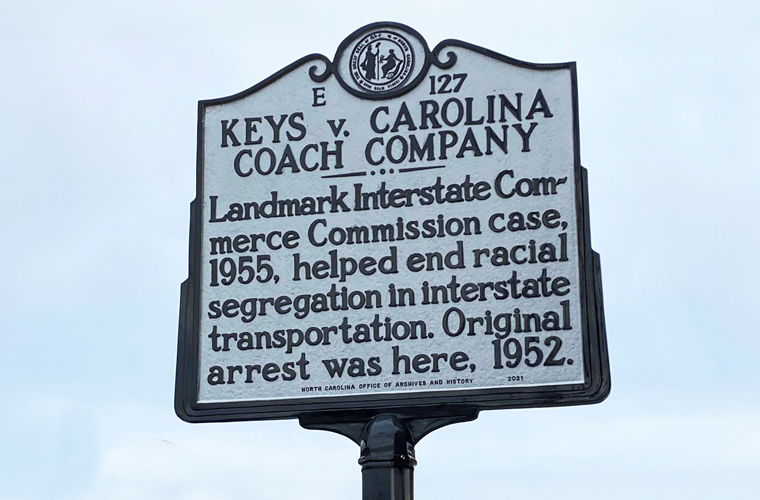Sarah Keys v. Carolina Coach Company was a landmark civil rights case in the United States, which challenged racial segregation on interstate buses and bus terminals. The case was brought by Sarah Keys, an African American woman who was a U.S. Army private, against the Carolina Coach Company, a bus company that operated in the southeastern United States.
The case began on August 1, 1952, when Sarah Keys boarded a bus operated by Carolina Coach Company in Roanoke, Virginia. She was traveling from Fort Dix, New Jersey to her home in Washington, D.C. After boarding the bus, Keys was instructed by the driver to move to the segregated section at the back of the bus, even though there were empty seats in the “whites-only” section. Keys refused to comply with the segregation policy and was subsequently arrested upon arrival at the bus terminal in Roanoke.
With the assistance of the Congress of Racial Equality (CORE), Keys filed a lawsuit against Carolina Coach Company, alleging that the company’s segregation policy violated her rights under the Interstate Commerce Act and the Fourteenth Amendment to the United States Constitution. The case garnered national attention and became a focal point in the fight against racial segregation in public transportation.
On December 5, 1955, the Interstate Commerce Commission (ICC) issued a landmark ruling in favor of Sarah Keys, declaring that racial segregation on interstate buses and at bus terminals was illegal. The ruling was a significant victory for the civil rights movement and marked a turning point in the struggle for desegregation. The decision in Sarah Keys v. Carolina Coach Company laid the groundwork for future civil rights victories, including the famous Montgomery Bus Boycott and the eventual desegregation of public transportation across the United States. The case also highlighted the power of nonviolent resistance and legal action in challenging discriminatory practices.
In recognition of her role in advancing civil rights, Sarah Keys was awarded the NAACP’s highest honor, the Spingarn Medal, in 1956. Her courageous stand against racial segregation on interstate buses helped pave the way for greater equality and justice for all Americans. The legacy of Sarah Keys v. Carolina Coach Company continues to resonate today, serving as a reminder of the importance of upholding civil rights and challenging injustice. The case stands as a testament to the bravery and determination of individuals like Sarah Keys who stood up against discrimination and fought for a more just and equitable society.
In conclusion, Sarah Keys v. Carolina Coach Company remains a pivotal moment in the history of civil rights in the United States. Through her unwavering commitment to justice, Sarah Keys helped dismantle institutionalized segregation and inspired future generations to continue the fight for equality and inclusion. Her legacy serves as a beacon of hope and a reminder of the ongoing struggle for civil rights and social justice.

